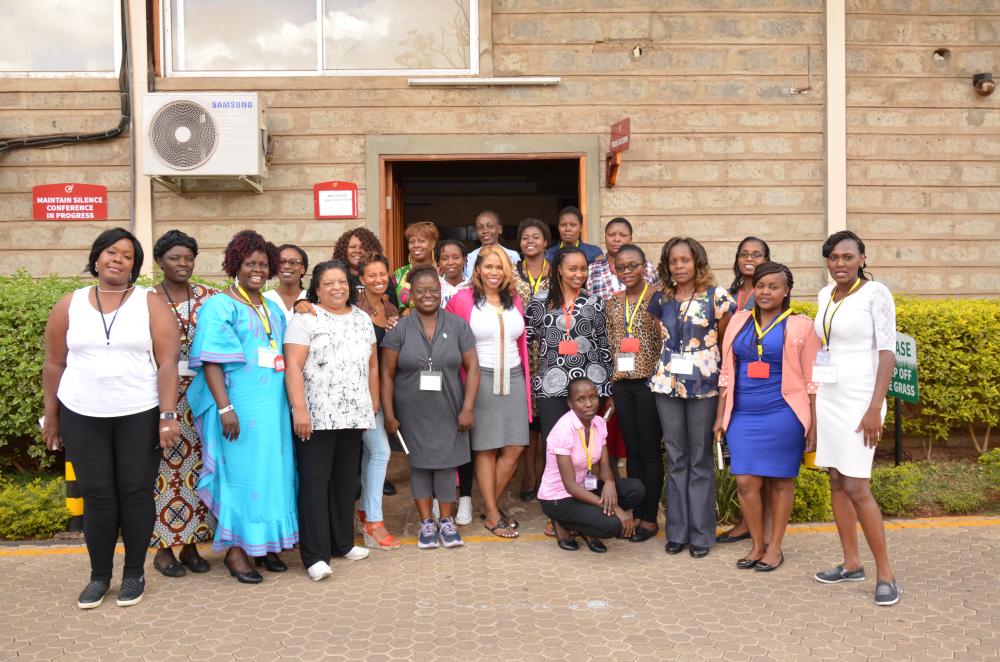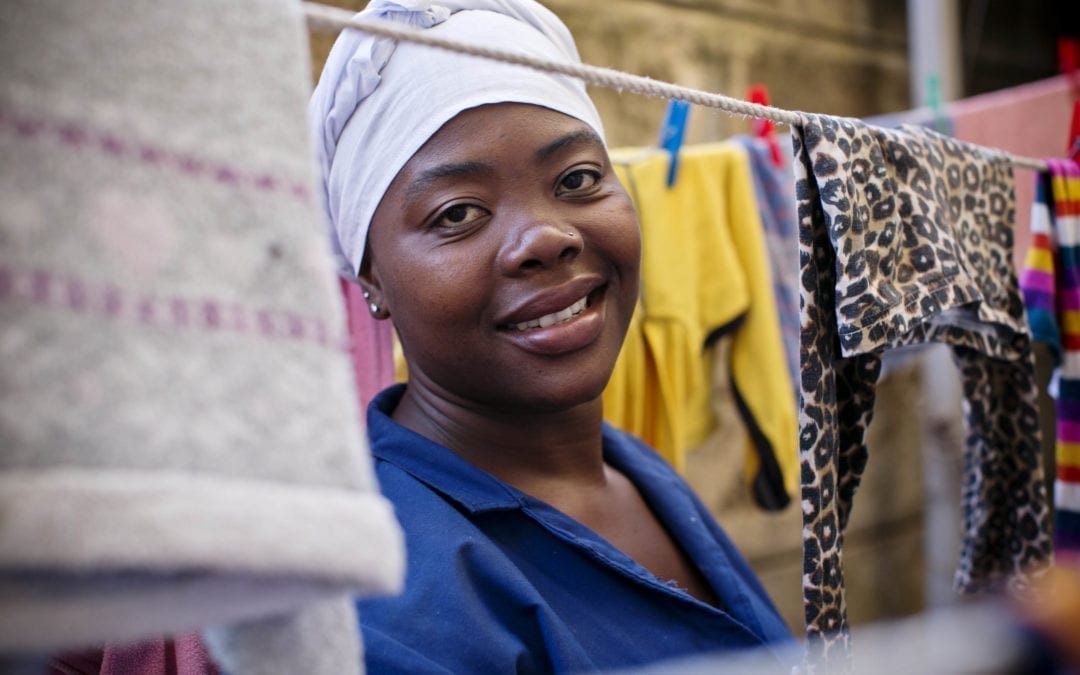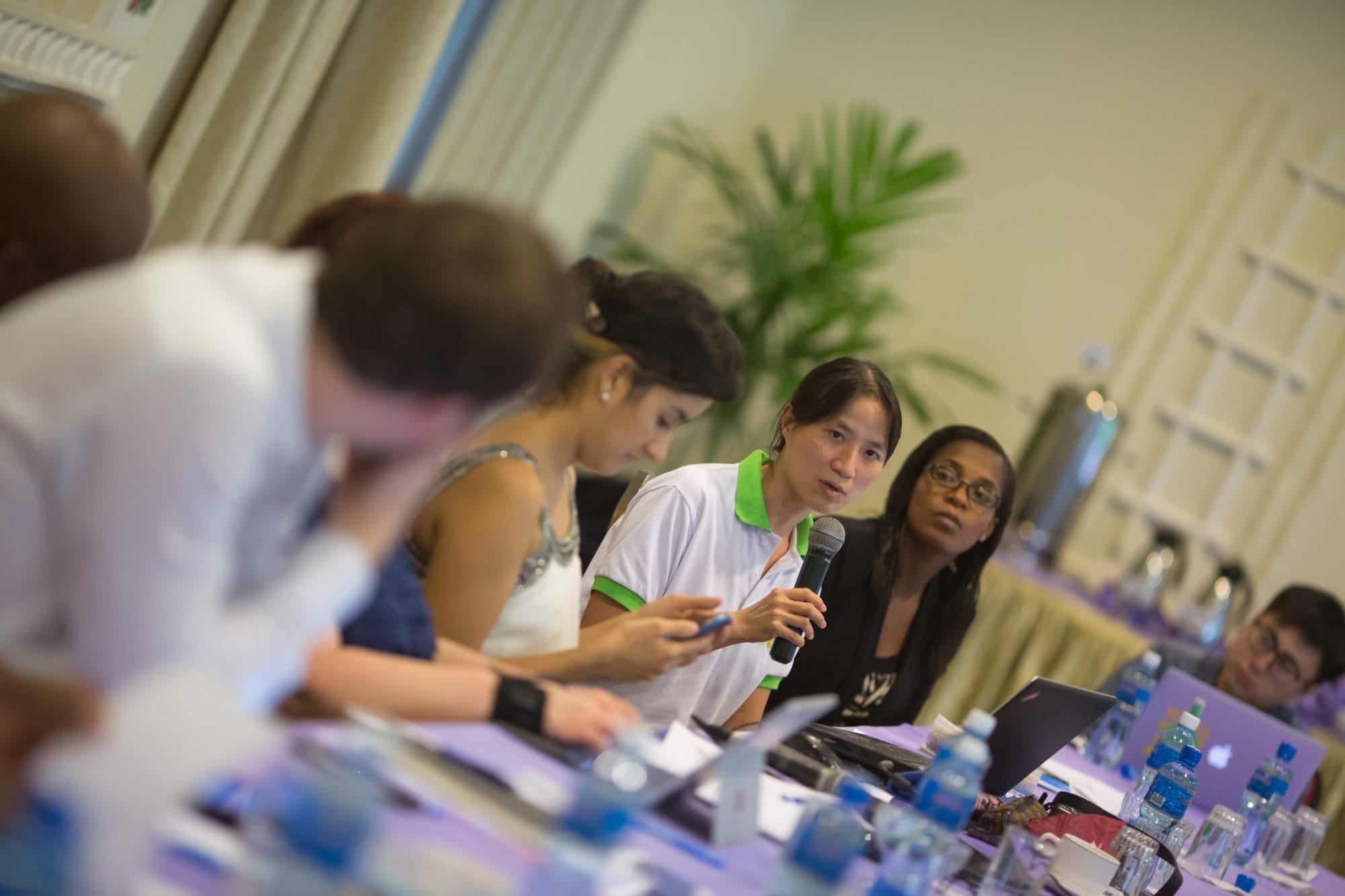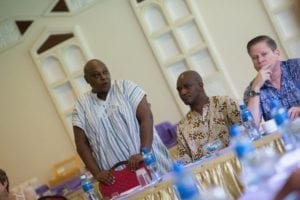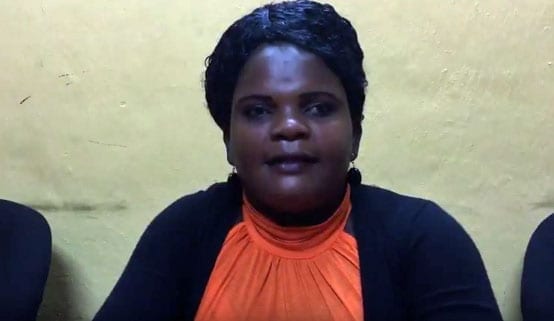
Kenya Domestic Workers Find Hope with Union
Like many women in Mombasa, Kenya, Alice Mwadzi says for years she barely eked out a living. A lack of jobs in the port city for many means a constant struggle to survive—selling fruit on busy highways or hauling carts stacked with heavy water containers through congested streets—involving long hours of often back-breaking work for nearly no pay.
“I was suffering so bad,” she says, remembering the time in 2012 when, desperately trying to support herself and three children, including a newborn son, a labor broker approached her. “He told me, ‘Alice, there is a chance you can change your life. You can go to the Middle East and have a different life so you’ll be a rich person.’”
To support her children and pay for their education, Mwadzi made the hard decision to leave them behind and become a domestic worker in Saudi Arabia.
“I was sure after two years, I’d have a change in my life. It was my only hope in life,” she says.
Without the Union, ‘I Don’t Know Where I Would Be’
But before she traveled, an organizer from Kenya Union of Domestic, Hotel, Educational Institutions, Hospitals and Allied Workers (KUDHEIHA) came to her house and invited her to a three-day training workshop. There, she learned how to educate domestic workers about their rights in Kenya and abroad. Ultimately, she became an organizer with KUDHEIHA, a Solidarity Center ally.
“If not for KUDHEIHA, I don’t know where I would be,” says Mwadzi. “They taught us how to get jobs organizing—to educate domestic workers on their rights.” Women traveling abroad for jobs as domestic workers are vulnerable to exploitation by labor brokers who sell them on false promises, and once in an employer’s home, often are subject to physical, sexual and mental abuse, forced to toil up to 20 hours a day, seven days a week.
Over the past five years, Mwadzi signed up 200 domestic workers with the union and helps women seeking to go abroad get jobs in Kwale, a town southwest of Mombasa, where she is based. “I go door to door to give them hope,” she says with pride.
Lack of Good Jobs Fuels Labor Migration
Informal economy jobs—street vending, motorcycle driving, day labor—comprise the vast majority of work options available in Kenya, where 2.5 million people toil in irregular, precarious jobs compared with 900,000 in the formal sector. In Mombasa and Kwale counties, an informal KUDHEIHA survey found that 60 percent of the workforce were casual or seasonal employers. Strikingly, many employers who now hire informal economy workers had until recently hired workers full time.
“Casual employment is the root cause of migrant workers moving for employment,” says Zacheaus Osore, KUDHEIHA Mombasa Branch secretary.
Kenya is not unique. The informal economy accounts for more than half of the global labor force, and most of the jobs do not pay enough for workers to support their families. Workers in the informal economy often face dangerous working conditions, with no health care or other social protections, and have no job security.
Living in extreme poverty despite working long hours, such workers are vulnerable to exploitative labor brokers, some of whom are their relatives or friends, whose offers of employment in countries like those in the Middle East frequently are based false promises. In Kenya, women signing on for domestic work in Saudi Arabia were told they would receive 23,000 Kenya shillings ($221) a month, only to find the pay significantly less and the working and living conditions inhumane.
Many Labor Brokers Cheat Workers Desperate for Good Jobs
In Kenya and around the developing world, labor brokers haunt villages, towns and cities, preying on women and men trying to support their families and make a better life for their children. Unscrupulous labor brokers will not show workers their contracts until they are at the airport or bus station, and frequently, the contracts are written in Arabic or a language the workers cannot understand. When they arrive at their destination, the contracts may even change.
Although Kenya recently passed a law regulating labor agents, KUDHEIHA leaders say the law is rarely enforced, and the union is pushing for better enforcement. KUDHEIHA also is working for laws that make it mandatory for informal economy employers to pay into the country’s social protection funds.
In a series of recent interviews in Mombasa, workers who returned from the Arabian Gulf describe their experiences working abroad and the conditions that drove them to grasp for the glimmer of hope they thought would improve their lives. They spoke out, sometimes choking through tears, because they want others to learn from their struggles and because, they say, they never want anyone else to endure what they did.
These are their stories.
‘When My Children Spit on You, Don’t Complain’
When Mwahamisi Josiah Makori arrived in Saudi Arabia in 2014 at the home of her employer, she was given 20 minutes to rest before beginning her duties as a domestic worker. Her employers held their noses when they greeted her and made her shower outside before allowing her in the house.
Her responsibilities involved cleaning two homes, including that of the employer’s mother-in-law. She was required to take care of the children, and when they spit on her, her employer told her not to complain. She was up all night caring for the baby and by 6 a.m., preparing the family’s breakfast.
She was given a torn, dirty mat to sleep on, and when she requested a new mat, her employer refused, telling her she was only there for work. In the middle of her tasks, she was required to stop and flush the toilet after a family member used the bathroom.
Makori was required to hold the baby throughout the day as she cooked, cleaned and cared for the other children. One afternoon, when she put the baby down to store groceries, the baby crawled to a cabinet. Alarmed, she called out. Her employer began beating her, saying she was making the baby nervous. They took her to the police authorities and told them she slept all day and refused to work.
She finally was able to convince the police of her plight, and an officer told her employer to pay her way home. The employer refused, but the employer’s mother-in-law paid her way to Kenya.
In Kenya, Makori had struggled to support her three children as a single mother. She was desperate for paid employment when her best friend introduced her to a labor broker who was traveling from village to village. Makori could not afford to pay her children’s school fees, and says she felt she had no choice but to leave the country for work.
After three months of nearly non-stop labor in Saudi Arabia, Makori returned to Kenya. Without pay.
Fearing for Her Life, Maria Mwentenje Fled Her Employer
In Mombasa, the labor broker’s announcement that jobs were available in Saudi Arabia resonated with Maria Makori Mwentenje.
“We were very poor. We had two children,” (age 10 and 1), Makori says, describing why she and her husband agreed that she should seek work in the Saudi Arabia. “We tried a small business and selling food, but that didn’t work. And there were no casual jobs available. We were hustling every day, but some days there was not enough to feed the family.”
Makori signed up with the labor broker but was not given a contract nor told her duties. Only at the airport did she learned she would be paid 18,000 Kenya shillings ($172) a month rather than the 23,000 ($221) she was promised. But even at that rate, she had to take a chance—it was not possible to earn that much in Kenya. She boarded the plane.
When she arrived in Saudi Arabia, she and other women traveling for work were taken to a room where their passports and travel documents were confiscated. Under the kefala system in Arab Gulf countries, migrant workers are tied to one employer, and it is illegal for them to get another job in the country. To ensure they do not leave, employers typically take their passports and often their mobile phones.
In Saudi Arabia, Makori was required to care for four children, including a baby. Working around the clock, her employer expected her to wake at all hours of the night to tend to the baby and still rise at 6 a.m. to prepare the family’s breakfast and get the children ready for school.
During her last pregnancy, Makori had developed hypertension, and in Saudi Arabia, the long hours, stress and difficult tasks exacerbated her condition. She experienced frequent headaches, and her body started to swell. Rather than take her to a doctor, her employer forced her to take pills, and she did not know what they were.
She was sexually harassed from the time she first walked into the employer’s house. When she contacted her husband and told him about the abuse, her husband went to the labor broker and asked why he sent his wife to such an employer. Rather than take steps to ensure Makori’s safety, the labor broker verbally abused her husband.
At one point, when she was too ill and tired to work, she told her employer she needed to rest. Enraged, the employer’s daughter entered the tiny space where Makori slept and after screaming at her, threw an iron at Makori, barely missing her head.
Fearing for her life, Makori fled to the police, where she was fortunate to encounter an officer who forced the family to return her passport and gave her money to travel. Unpaid for six months of work, she was grateful to return home with her life.
The Promise of a Tailoring Job Turns to Horror
At the urging of her mother, Noor (name changed to protect identity) signed up with a labor broker in 2014 to work in the Arabian Gulf. A seamstress in Mombasa, she made it clear to the broker she wanted to continue her profession abroad. Her sister suggested they travel together and work in the same house. So they met with an agent who promised they would stay together, and they made the journey to Saudi Arabia.
At the airport in Saudi Arabia, all the Kenyans migrating for work were taken to a room where the agent called their names, one at a time, to leave with their employer. Her sister’s name was called, and she left. Noor remained behind. Finally, a man called her name. He took her to an employer whose compound included two businesses, including a tailoring shop. Her sister was not there.
At first, Noor worked as planned in the tailoring shop. But one day, she was asked to model for a group of women. She was very uncomfortable doing so, but agreed. As she walked for the women, they touched her, making her even more uncomfortable.
Days later, a woman named Lucy, who also worked at the house, told her to prepare for a visitor. She offered Noor a drink into which she had slipped a drug. Five men came. Ali managed to fight them off. But when they returned, they stripped her, tied her to a bed and four men raped her. The first was her employer.
Later, Lucy came to her and said she would be paid extra because she had been a virgin.
Noor quit eating. She locked herself in the bathroom for three days. Finally, her employer asked if she needed anything. Noor said she needed to go home. Her boss said, “If my wife finds out, she will kill you.” Noor said she wanted to go home.
Lucy helped her escape. She gave Noor a passport and a ticket and hid her in the trunk of a car for five hours. Ultimately, Noor made it to the airport and flew home.
Three years later, Noor is still so traumatized by the events that she cannot stop crying as she describes what happened to her in Saudi Arabia. She says she is no longer the independent spirit she had been before she migrated for work. She no longer sings and plays music. Yet she summoned the strength to tell her story, she says, so no other woman will experience her horror.


